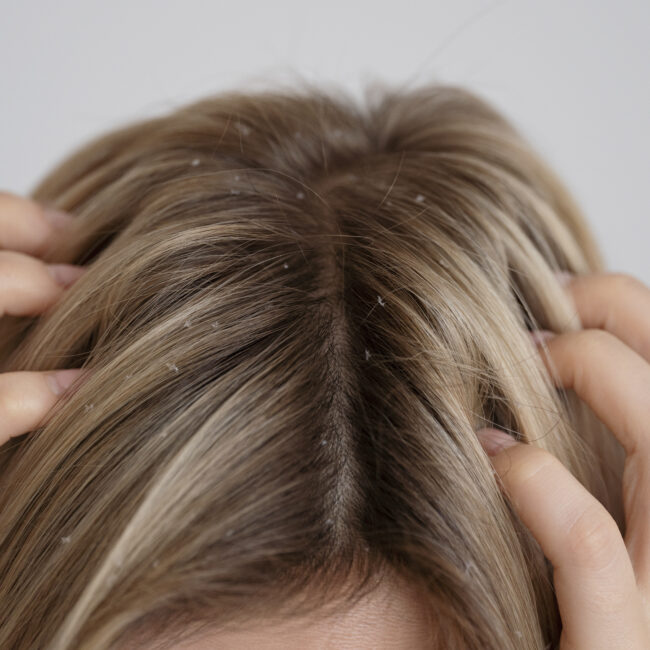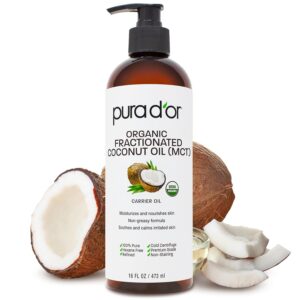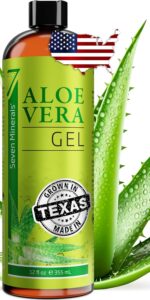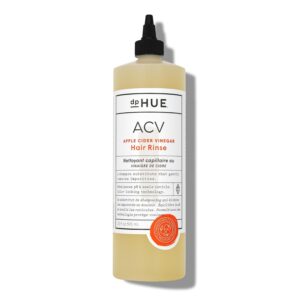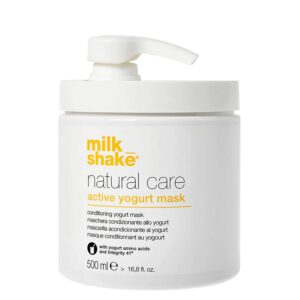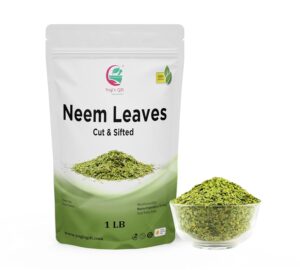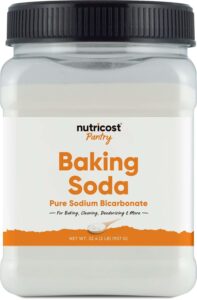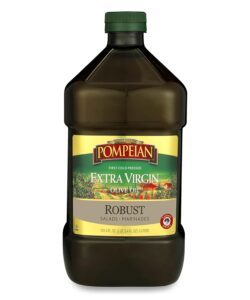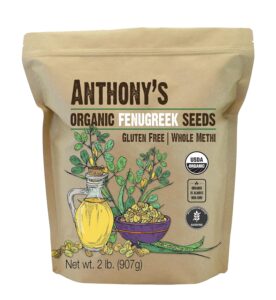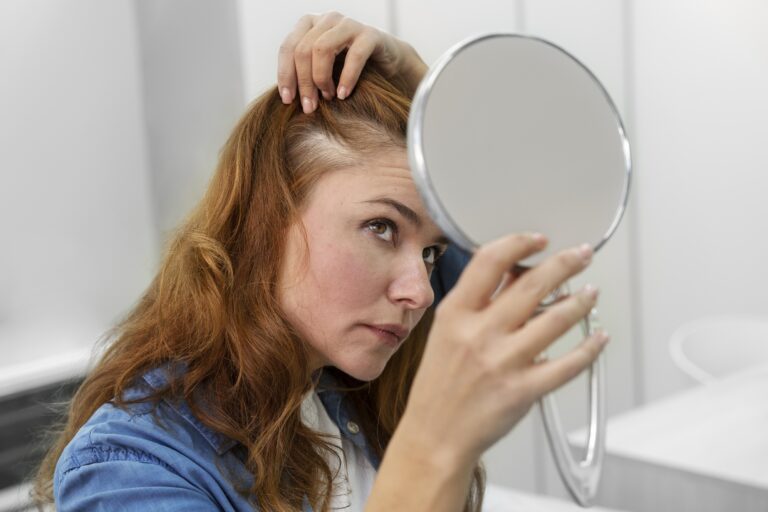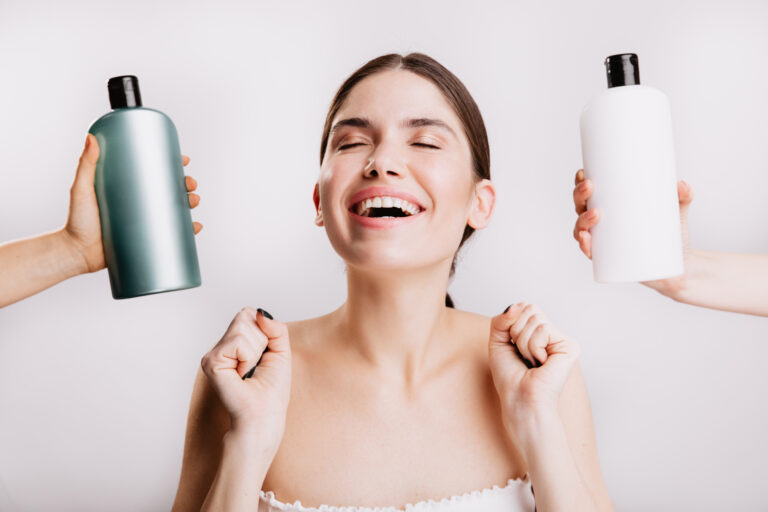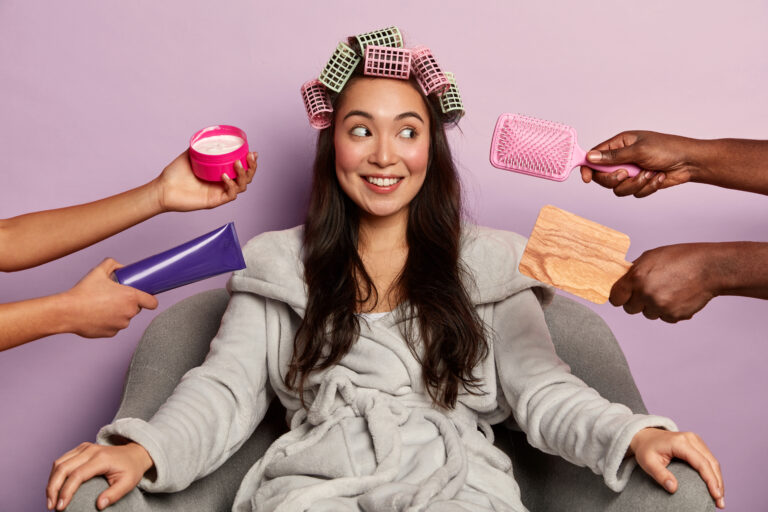Imagine stepping out in your favorite black outfit, feeling confident — until you notice those stubborn white flakes dusting your shoulders. Instant mood killer. Dandruff just shows off without warning, leaving your scalp itchy and uncomfortable. But sharing the good news: you don’t have to spend a ton at the salon or use harsh stuff on your hair. Simple home remedies and a few gentle products can actually calm your scalp, cut down the flakes, and make your hair feel healthy again.
Can Dandruff Cause Hair Loss?
The most important question is, “Can dandruff cause hair loss?” While dandruff itself doesn’t directly cause baldness, constant scratching and scalp inflammation can weaken hair roots, leading to breakage and shedding over time. The best way to protect your hair and your confidence is to keep your scalp calm and clean.
The key is balance—hydrating when it’s dry, cleansing when it’s oily, and soothing irritation naturally.
Why Dandruff occurs?
Before finding the solution, we should know first why dandruff happens. Common causes include:
- Dry scalp – Lack of moisture leads to flaking.
- Excess oil – Ironically, an oily scalp can feed yeast (Malassezia) that causes dandruff.
- Product buildup – Heavy styling products trap oil and dead skin cells.
- Skin conditions – like eczema or psoriasis.
Top 10 Natural Treatments for Dandruff, Backed by Science and Tradition
1. Coconut Oil Massage
Coconut oil deeply nourishes the scalp, locks in moisture, and reduces the dryness that often causes flakes. Its antifungal properties also help control yeast growth.
How to use: Massage 2–3 tablespoons of warm coconut oil into your scalp. Leave it for at least 30 minutes (or overnight) before washing with a mild shampoo.

2. Tea Tree Oil Drops
Tea tree oil is a classic natural dandruff fighter thanks to its antifungal and antibacterial strength.
How to use: Mix 2 tablespoons of a carrier oil (like olive or coconut) with 3–4 drops of tea tree oil. Massage into the scalp and rinse after 20 minutes.
Affiliate Pick: 100% Pure Tea Tree Essential Oil – Therapeutic grade.

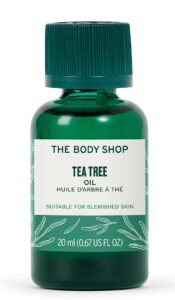
3.Aloe Vera Gel
Aloe Vera cools irritation, reduces itching, and keeps the scalp moisturized. It also has a gentle antifungal effect.
How to use: Apply fresh aloe Vera gel directly to your scalp. Let it dry, then rinse with lukewarm water.
Affiliate Pick: Pure Aloe Vera Gel – No alcohol, no artificial colors.

4.Apple Cider Vinegar Rinse
Apple cider vinegar helps balance scalp pH, reduce fungal growth, and remove product buildup.
How to use: Mix 2 tablespoons of apple cider vinegar with ½ cup water. After shampooing, pour the mixture on your scalp, massage, and rinse after 5 minutes.
Affiliate Pick: Organic Apple Cider Vinegar with the “Mother”.

5. Lemon Juice
Lemon juice’s natural acidity regulates scalp oil while fighting dandruff-causing fungi.
How to use: Apply freshly squeezed lemon juice to the scalp. Leave for 10 minutes before rinsing. (Avoid leaving too long as it may lighten hair.)
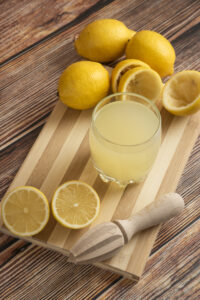
6. Yogurt & Honey Mask
Yogurt restores healthy scalp bacteria, while honey locks in moisture and soothes irritation.
How to use: Mix ½ cup plain yogurt with 1 tablespoon honey. Apply to the scalp for 20 minutes, then wash gently with shampoo.

7. Neem Leaves (Indian Lilac)
Neem is an age-old Ayurvedic solution for itchy, flaky scalps thanks to its antifungal and antibacterial properties.
How to use: Boil neem leaves in water, cool, and use as a final rinse after shampooing.

8. Baking Soda Scrub
Baking soda gently exfoliates dead skin cells and controls fungal growth.
How to use: Make a paste with 2 tablespoons baking soda and water. Massage into the scalp for 2–3 minutes, then rinse thoroughly. Use only once a week to avoid dryness.

9. Olive Oil Treatment
Packed with antioxidants and fatty acids, olive oil nourishes the scalp and reduces flakes.
How to use: Warm 2 tablespoons olive oil, massage into the scalp, and leave for 30 minutes before shampooing.
Affiliate Pick: Pompeian Extra Virgin Olive Oil
10. Fenugreek (Methi) Seeds
Fenugreek seeds are rich in protein and nicotinic acid, which strengthen hair and reduce dandruff.
How to use: Soak 2 tablespoons fenugreek seeds overnight. Grind into a paste, apply on scalp for 30 minutes, then rinse.
Affiliate Pick: Anthony’s Organic Fenugreek Seeds
Products That Really Help
Sometimes, natural remedies work best when combined with scalp-friendly products. Here are a few worth trying:
- Anti-dandruff shampoos – dermatologist-recommended and effective.
(Buy Now from Amazon) - Tea tree oil shampoo – gentle and antifungal.
(Buy Now from Amazon) Scalp massager brush – improves circulation and product absorption.
(Buy Now from Amazon)
Extra Tips to Prevent Dandruff:
- Wash hair regularly with a gentle, sulfate-free shampoo.
- Avoid scratching—this makes irritation worse.
- Cut down on heavy styling products.
- Eat a diet rich in zinc, B vitamins, and omega-3s. (see article: Best vitamins for hair )
- Manage stress, as it can trigger flare-ups.
👉 If you’re wondering what is the best scalp treatment at home?—the answer depends on your hair type. For some, it’s a soothing aloe vera mask, while for others, a nourishing coconut oil massage works wonders. The key is consistency.
And if natural remedies aren’t enough, explore anti dandruff hair shampoos—that are top-rated on Amazon that target flakes without stripping your scalp.
Conclusion:
Finding the right dandruff treatment at home doesn’t have to be complicated. From coconut oil massages to apple cider vinegar rinses, these simple remedies offer effective, affordable solutions for scalp health.
Consistency is key—whether you stick to natural methods or add in anti-dandruff shampoos. Over time, you’ll notice your scalp feels calmer, your hair looks shinier, and those annoying flakes are finally under control.
So if you’ve been wondering how to treat dandruff at home?—now you have plenty of answers. Start small, stay regular, and watch your scalp transform into its healthiest, flake-free self.
